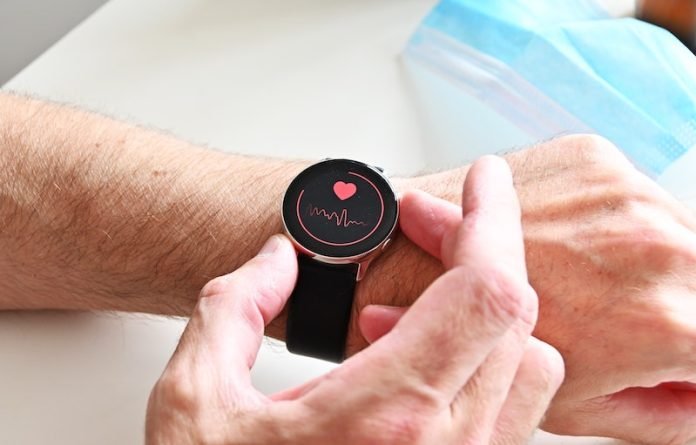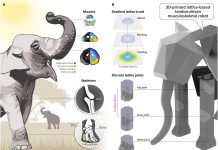
Mobile apps and wearable trackers claim to help detect heart problems and help manage — or even prevent — a heart condition. But do they really work?
It all depends, says University of Michigan Health cardiologist Jessica Golbus, M.D., of the Frankel Cardiovascular Center.
“There certainly has been an explosion of mobile applications for health care,” said Golbus, who believes mobile apps are most useful in observing and helping to detect a condition.
She’s also excited about the emerging role mobile apps are playing in the management of patient health.
Golbus says the apps that get the most attention are those developed for the early detection of an abnormal heart rhythm, or arrhythmia. Think Apple Watch or Fitbit.
Although the health care provider is the best person to help diagnose and treat a condition, mobile apps and wearable technology certainly are having an important impact on health care.”
Atrial fibrillation, also known as Afib, is a serious heart condition that can cause blood clots, stoke, heart failure and other heart-related complications.
Once atrial fibrillation is detected, follow-up with a health care provider is critical to determine the significance of the arrhythmias and appropriate management strategies, Golbus stresses.
“We really want to understand how often a person is having atrial fibrillation. Was this just a one-time brief episode that perhaps doesn’t need treatment? Or is the patient having much longer episodes that require treatment,” Golbus said.
This information is critical as it helps determine the appropriate treatment method for each patient.
Mobile apps may be helpful in observing or alerting to a potential condition, but Golbus says health care professionals are still trying to figure out exactly what this means in terms of long-term implications for treatment.
Managing heart disease
Mobile apps and trackers are also being used to help heart patients manage their disease, says U-M Health pharmacist Michael Dorsch, Pharm.D.
In his studies, Dorsch focuses on how health information technology can lead to better outcomes for those with cardiovascular disease, including heart failure and hypertension.
He is studying interventions to help individuals with high blood pressure lower their sodium intake and learn heart failure management strategies.
“We know that high blood pressure can be improved with increased physical activity and a low-salt diet. And so we’re delivering these notifications about physical activity and nutrition to our study participants through an app,” said Dorsch.
Eat this, not that
Another study Dorsch and the U-M team are involved with focuses on helping patients with high blood pressure choose lower sodium alternatives.
The study uses an app developed in conjunction with a third-party provider. The app sends participants food-related notifications while in a grocery store or at a restaurant.
Study participants have access to a customized app that helps them determine if the food they’re selecting at the grocery store is healthy simply by scanning the item, says Dorsch. “If it’s not a healthy choice, the app gives them better alternatives.”
In restaurants, study participants can find out which menu items are healthiest.
“Our app knows the full content of menu items through a national database that keeps track of all foods sold in North America’s grocery stores and restaurants,” said Dorsch.
“When someone scans an item or searches the Internet, they’re directed to the database, which is constantly updated.”
What it all means for clinical care
With the two most popular wearables – Apple Watch and Fitbit – being FDA-approved to detect atrial fibrillation and monitor heart rate, “The only problem is, how do they fit into clinical care,” said Dorsch.
The electrophysiology team at U-M Health is working on just that, with the belief that health care is headed in a new direction as providers shift to preventive care measures, with patients in more control of their health.
All part of what is known as “precision medicine,” this new direction is evident in a digital health program currently in development at U-M Health, says cardiovascular electrophysiologist Hamid Ghanbari , M.D., who specializes in treating patients with heart arrhythmias.
Propelling this new direction is wearable technology and a variety of apps that allow patients to communicate with their health care providers — all to encourage patient involvement in decisions and to educate them about healthy behaviors.
And, just as critical, helping providers care for patients in a more efficient way.
The program is based on mobile applications used by patients to communicate information about their health back to their providers.
“This communication allows us to monitor a patient’s atrial fibrillation — not only the presence or absence of it — but how much they’re experiencing,” said Ghanbari.
“And then through our mobile applications that we provide them, we’re able to understand the influence of atrial fibrillation on their symptoms. So we can deliver personalized interventions in a way that we’ve never been able to do before.”
This includes sleep interventions, physical activity interventions and nutrition recommendations, in conjunction with the wearable device being used by the patient.
“Digital health will allow us to continuously manage a patient’s Afib between visits, something we haven’t been able to do until now,” said Ghanbari.
“The goal is to build a system that sends patient information directly to the clinical care team, making it part of the patient’s medical record, which is very difficult to do.
“Using this system, we could continuously monitor and then intervene based on critical information that’s coming through in real time. Everything that you get from these devices is going to be actionable.
“It’s the future of medicine,” said Ghanbari, who believes his team’s digital health program will serve as a model for the care of patients with all types of conditions.
Dorsch agreed, “Although the health care provider is the best person to help diagnose and treat a condition, mobile apps and wearable technology certainly are having an important impact on health care.”
Written by Jane Racey Gleeson.
If you care about heart health, please read studies about a big cause of heart failure, and Aspirin is linked to higher risk of heart failure.
For more information about heart health, please see recent studies about how espresso coffee affects your cholesterol level, and results showing Vitamin K2 could help reduce heart disease risk.



